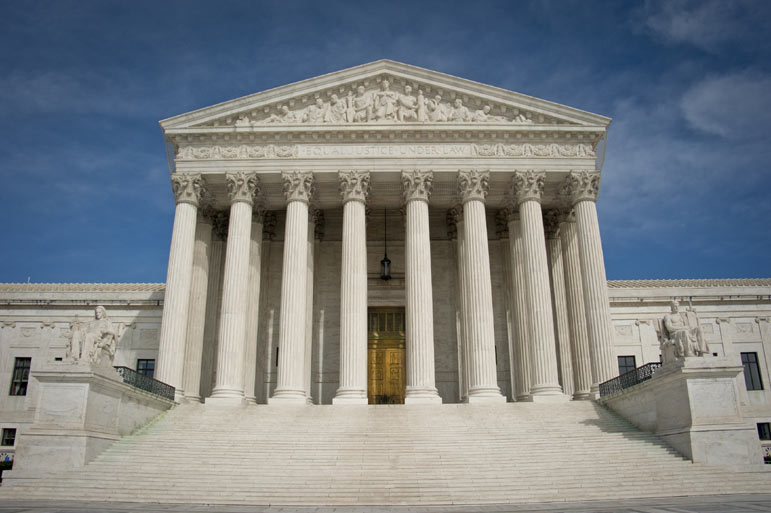
There may have been a stranger and more lurid case in the federal appeals courts in 2015 than that of Gilberto Valle, the "cannibal cop." But if there was, I haven't heard of it -- and it doesn't carry the same high probability of going to the U.S. Supreme Court.
A divided panel of the U.S. Court of Appeals for the 2nd Circuit on vacated both Valle's conviction for conspiracy to kidnap and a second conviction for unauthorized use of a computer database to look up a possible victim. Both parts of the decision deserve a close look, for different reasons. The first half, which is more fascinating but won't make it to the Supreme Court, found the appeals court drawing a sharp line between fantasy and reality. The second, which may well be heard by the justices, raises far-reaching questions of how the law should regulate employees who use office computers for nonauthorized uses.
I won't dwell on the details of Valle's alleged crimes -- the tabloids have already dwelt on that. Suffice it to say that the six-year veteran of the New York Police Department was caught by his wife engaging in lengthy and detailed online chats with other fetish-driven computer users in which they discussed kidnapping, torturing, cooking and eating female victims.
His conviction for conspiracy to kidnap depended on federal agents' claims that, having reviewed thousands of Valle's online conversations, they drew a line between chats they deemed to be fantasy and a subset they deemed to be real. The agents reviewed thousands of communications with 24 interlocutors and focused on 40 conversations in particular, with three distinct users.
At trial, one agent testified that the government excluded all conversations that "use the word 'fantasy' in the actual chats or emails." This left the impression that the prosecutors knew they couldn't get a conviction if the word "fantasy" appeared in a given conversation. So they focused on those where it didn't.
After a jury convicted Valle, the trial judge reversed the conspiracy count, saying there wasn't enough evidence. The 2nd Circuit upheld that judgment, for a specific reason: It said there was no appreciable difference between Valle's fantasy conversations and his allegedly real ones, and so not enough evidence to prove he actually conspired to commit a kidnapping crime. To do so, the court noted that some of the unrealistic elements of Valle's other fantasies were present in the supposedly realistic examples with which he was charged, including a cabin in the woods he didn't possess and a human- size cooking device that didn't exist.
What's fascinating is that, in saying that the prosecution couldn't prove a distinction between fantasy and reality, the appellate court was itself asserting a sharp difference between the two. Judge Barrington Parker began his opinion by saying that the line "between fantasy and criminal intent … still exists" even "in the Internet age." Thus, "fantasizing about committing a crime, even a crime of violence against a real person whom you know, is not a crime."
The whole tenor of the opinion is to say that there exists a realm of private fantasy, disconnected from the intention to carry itself out in the real world -- and that this realm must be outside the reach of the law. To the dissenting judge, Chester Straub, all that mattered was that Valle agreed online with a co-conspirator to kidnap a particular woman, Kimberley Sauer.
In essence, Straub was saying that the line between fantasy and action isn't that clear -- and that, therefore, a reasonable juror could've found that Valle planned to kidnap Sauer.
It's worth noting that these different analyses of the fantasy-reality distinction match debates about pornography and its consequences that have come up in the context of the First Amendment. Some, influenced by (among others) the preeminent feminist legal scholar Catharine MacKinnon, think fantasy bleeds into reality and shapes it, and are therefore open to legal regulation of pornography. Others, frequently coming from a more libertarian tradition, think that fantasies are more like ideas that deserve constitutional protection.
The other issue in the case involves the interpretation of the federal Computer Fraud and Abuse Act, which makes it a crime to "exceed authorized access" on a computer. Valle was convicted under this language for accessing an NYPD program called Omnixx Force Mobile, which includes the National Crime Information Center database, to look up a woman about whom he was chatting online. As a police officer, Valle had access to the database, but he broke department rules by using it for a noninvestigative purpose, thus exceeding his authorized access.
The 2nd Circuit reversed the conviction, saying that it wasn't clear that the law covers a situation where an employee accesses material he's otherwise permitted to use for a prohibited purpose. This issue has split the federal courts of appeal, with four adopting the government's view, and now three saying that under the rule of lenity, an ambiguous criminal statute ought to be read restrictively and in favor of the defendant.
The 2nd Circuit's worry is that a broad reading of the statute turns every violation of an employer's computer rules into a violation of federal law. That would certainly be an overreading of the statute, not to mention bad policy.
The split means the Supreme Court should resolve this issue -- possibly even in an appeal in this case. Ordinarily the justices shrink from lurid headlines. But with the fantasy- reality issue stripped away, Valle's case becomes a matter of ordinary statutory interpretation -- boring in the good way that lawyers like.
Comment by clicking here.
Noah Feldman, a Bloomberg View columnist, is a professor of constitutional and international law at Harvard University and the author of six books, most recently "Cool War: The Future of Global Competition."


 Contact The Editor
Contact The Editor
 Articles By This Author
Articles By This Author
